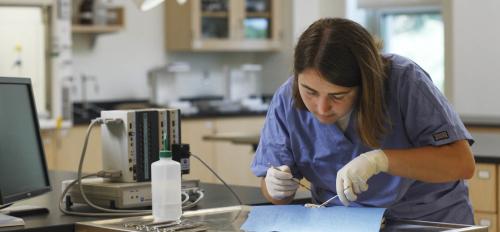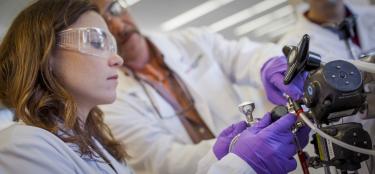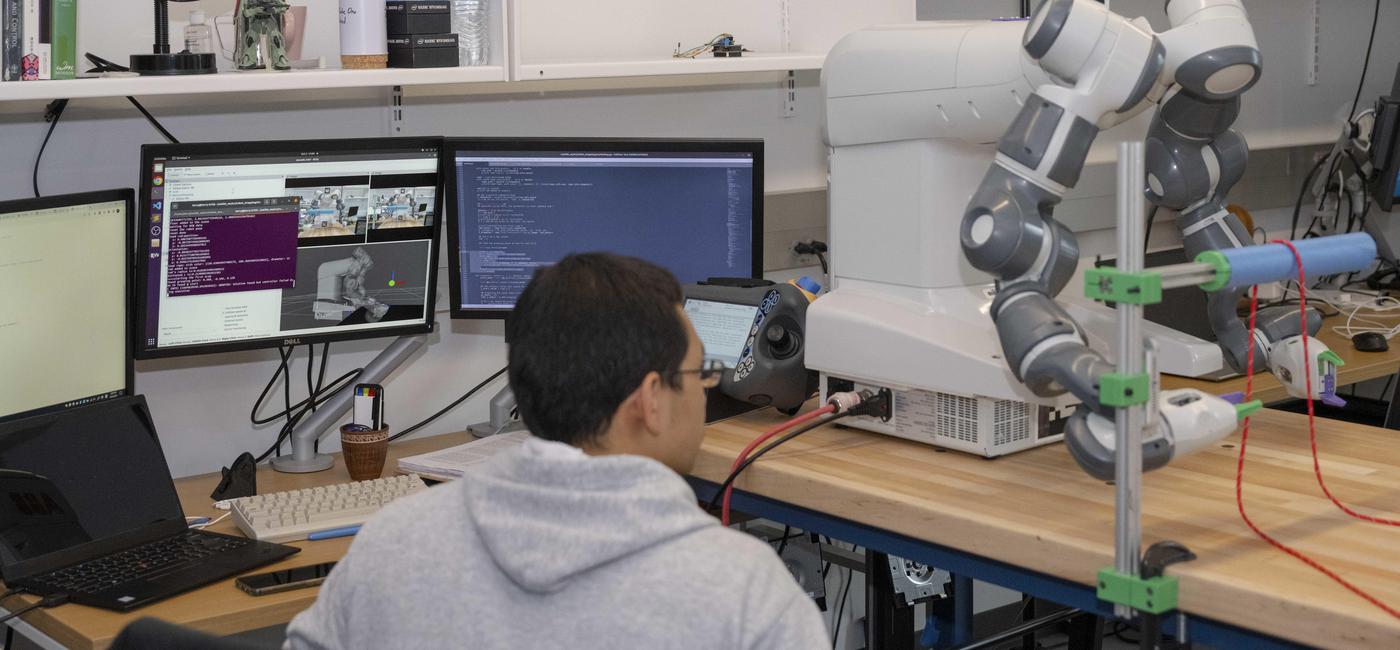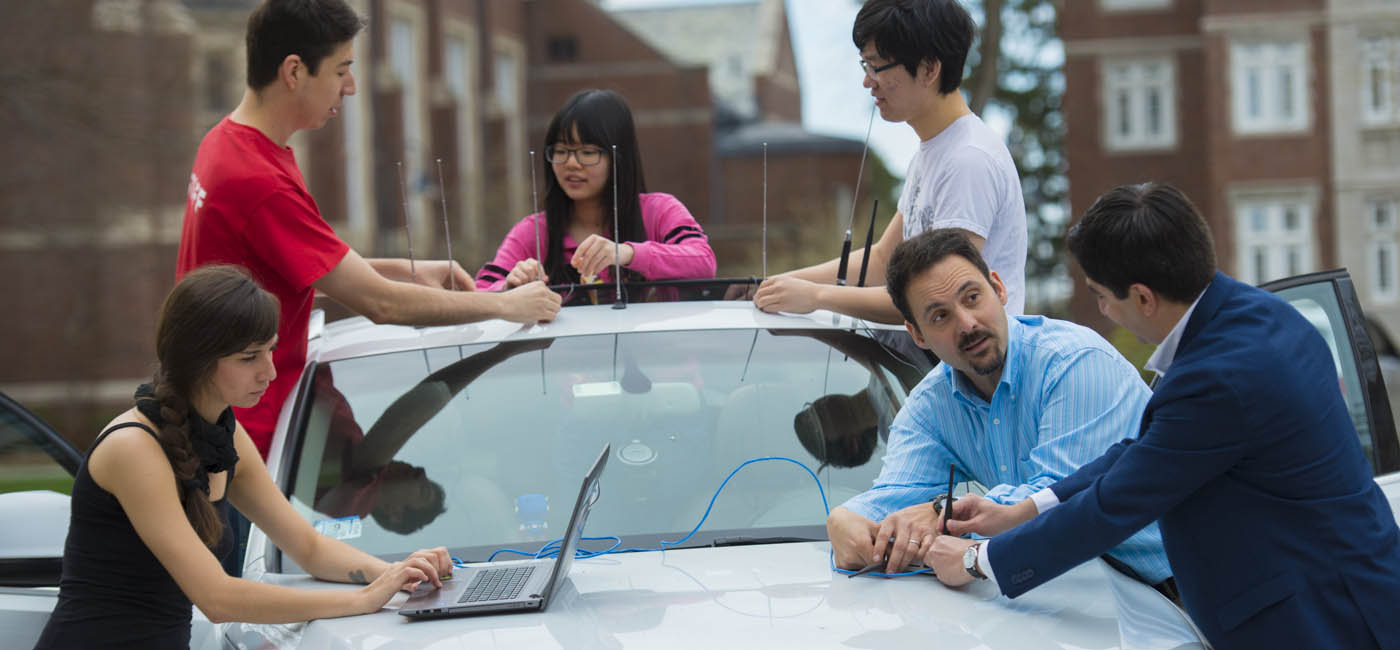We are passionate learners here, so if you want to hone in on a specialty in the Biomedical Engineering industry, our Master of Engineering in Biomedical Engineering program gives you that flexibility. With a course-based curriculum that appeals to entrepreneurial engineers of all disciplines, you’ll find the program gives you the biomedical engineering expertise to advance in your industry.
Whether you want to help inventors of new medical instruments through patent law, or you’d like to design or develop new products—or you’re simply interested in how technology pushes the envelope in biomedical engineering—you’ll find a way to make that happen here.
The biomedical engineering MEng prepares you to consider the big picture as you understand the ethical implications of biomedical engineering developments and the roles of physicians, patients, and the marketplace in new products and innovations. If you’re looking for clarification around common questions such as “what are the specialty areas within biomedical engineering?” and “what is biomedical technology?” you aren’t alone. At WPI, our coursework includes a multidisciplinary mix of biomedical engineering, mathematics, life sciences, and various electives that delivers a comprehensive interdisciplinary approach to all the topics and technology in the discipline.

Biomedical Engineering: Career Outcomes
What does a career in Biomedical Engineering look like? Browse WPI and national data to learn more about companies who have hired WPI graduate, average salaries, job outlook, and more.
The MEng Biomedical Engineering helps all types of engineers focus their specialty in the biomedical industry. The flexible program is especially suited for anyone going to school and working full-time.
Through course work that includes a multidisciplinary mix of biomedical engineering, advanced mathematics, life sciences, and various electives, students tailor their degree to their interests. Students work alongside renowned faculty to learn cutting-edge approaches in areas like tissue engineering, biomedical instrumentation, and biofluids.
A thesis is not required in the master of engineering in biomedical engineering, but you may choose to conduct a smaller research project as part of your degree.
Whether students perform their own research projects or not, WPI’s state-of-the-art research facilities play a big part in the master of engineering in biomedical engineering. Faculty members teach and conduct research projects in the dedicated Life Sciences & Biomedical Engineering Center in Gateway Park. A four-story center, the building offers research space and a modern core equipment facility.

Being on the leading edge of research advances means you’ll think like a scientist, an engineer, an entrepreneur—all with technology in the forefront.

Research laboratories at WPI’s Life Sciences & Bioengineering Center at Gateway Park include a 124,600-square-foot space. These labs focus on non-invasive biomedical instrumentation design, signal processing, tissue biomechanics, biomaterials synthesis and characterization, myocardial regeneration, cell and molecular engineering, regenerative biosciences, and tissue engineering.

Classroom knowledge is applied directly to real-world problems as faculty and students work side-by-side in labs, always striving for the next innovation in regenerative medicine, drug discoveries, tissue remodeling, medical imaging, or physiological monitoring.

Successful collaborations with industry partners and significant funding for major research means our faculty and students have the resources to make discoveries that impact areas such as biomaterials and tissue engineering, biomechanics and mechanobiology, and bioinstrumentation and signal processing.
Faculty Profiles







Graduate Studies Series
Team members from Graduate & Professional Studies host quick and convenient webinars designed to highlight popular topics when starting grad school. Take a deep dive into specific areas of interest such as how to secure funding, how to ace your application, an overview of student services, and more!
Have questions?
WPI's dedicated graduate student support team can help.
Refer a Friend
Do you have a friend, colleague, or family member who might be interested in a WPI graduate program? Click below to tell them about our programs.
Have a Masters Already? Consider Earning Your PhD.
Maybe you’re already a step ahead and have a master of engineering in biomedical engineering or a related field? Earning a PhD can help you get ahead and be on your way to making breakthrough discoveries that push the boundaries. Whether you like investigating problems or teaching others, a PhD in biomedical engineering will help back your endeavors. With two lab rotations, you have the opportunity to work with WPI’s world-renowned faculty day in and day out.
Not Sure an Entrepreneurship Edge is For You? Explore a Master of Science in Biomedical Engineering Instead.
If you’re interested in gaining biomedical engineering expertise, but don’t plan on pursuing a business path— for instance an entrepreneurial or legal role in the field—our master of science may be a more targeted program for you. Our master’s in biomedical engineering dives into the technical and scientific side of advancing healthcare. You’ll combine engineering concepts with mathematics, life sciences, and more as you work on research projects that make real-world impact.
Curious About Biomedical Engineering But Just Entering College? Consider a BS.
Are you just starting to think about your ideal college career and wondering if the biomedical engineering field is right for you? Maybe you have specific questions like what is a biomedical engineer exactly? If you have a passion for combining engineering with biology and health to bring concepts into prototypes, be sure to explore a BS in biomedical engineering. Students are challenged to think like scientists as they learn about cutting-edge industry approaches to medical science.
Explore WPI's Other Master's Degrees Related to Biomedical Engineering
If you’re interested in the field of biomedical engineering and all the potential it offers, but plan a different master’s degree path, WPI has lots of options that can help you pursue both. WPI’s MS in electrical and computer engineering can help you focus on topics such as medical devices and how they are built and operate. With our MS in robotics engineering, you’ll be able to explore areas similar to and intersecting with biomedical engineering including robotic surgical devices and even prosthetics. WPI’s mechanical engineering master’s degree program delivers a broad approach that will advance your expertise to deepen your knowledge around biomedical engineering so you can apply it to your chosen degree path.


